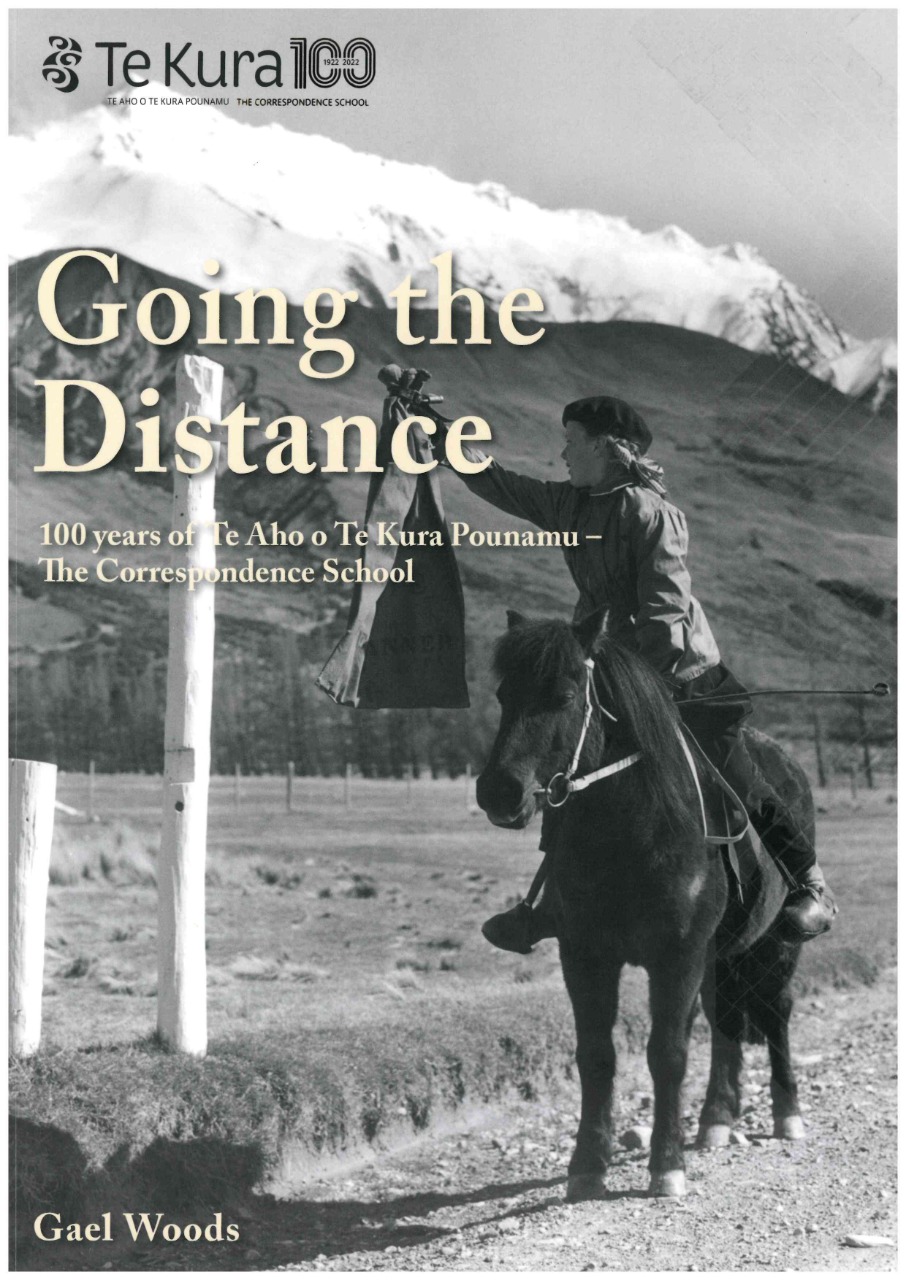Going The Distance : 100 Years of Te Aho o Te Kura Pounamu The Correspondence School
From a sole teacher to New Zealand’s largest school, Going the Distance tells the 100-year story of how a correspondence scheme, a “doubtful experiment” became the Department of Education’s Correspondence School and later through a series of remarkable transformations - Te Aho o Te Kura Pounamu, which now enrols more than 25,000 students a year and is the country’s largest Māori school. The Minister of Education, Chris Hipkins, has described Te Kura’s work with the country’s most vulnerable students as one of the great untold stories of the New Zealand education system. Back in 1922, the first teacher, Miss Janet MacKenzie, was expecting to enrol about 25 “backblocks”students, but such was the clamour for education that the numbers rocketed with 100 on the roll by the time lessons began. By the end of the year, there were almost 350 pupils, with every lesson, every correction, every letter to pupil and parent handwritten by the sole teacher. The book follows the school’s history through the appointments of several headmasters, all of whom were determined that the pupils should have a “real school”. They held exhibitions of students work (attended by many dignitaries of the day), formed a multitude of clubs, established a museum, built an extensive library, sent out teachers into isolated districts. These visiting teacher reached their remote pupils through an astonishing range of transport, including by dinghy, horseback and on gun carriers. Residential schools were also held every year where the “corrie kids” would spend a month with their schoolmates, who they got to know through the pages of their annual magazine, the Postman. A lot of the story is related by the pupils themselves in the prose and verse they contributed to the Postman, from 1928 to 2002. There are also many comments and descriptions of the school through annual reports, in speeches by Governors General, Prime Ministers from Michael Joseph Savage to David Lange, as well as Ministers of Education, and Government agencies. In the book’s foreword, the Prime Minister Jacinda Ardern, a former Te Kura student herself, says Going the Distance is not only a history of the school and the New Zealand education, but is also the story of how New Zealanders lived in times past, what they thought about, what was important to them, and even what they laughed about. And she says it tells how Te Kura has been called on in times of national crises, such as the devastating polio epidemics of the 1940s right up to providing its expertise in online learning during the COVID-19 global pandemic. For its first 60 years, the school was truly a national icon – a model of innovative educational programmes, a national broadcaster of educational programmes, and a provider of lessons to a broad range of students from early childhood to adults. However, the school’s fortunes begin to change dramatically in the 1980s. Its traditional base of remote children declined, and a new student profile began to dominate - students, alienated, often expelled, from their own school, often Māori, and most problematically, a type of student least suited to learn on their own through distance education. The school said it had been given a major social problem by government agencies without the additional resourcing needed to do the job, and was then criticised publicly by other branches of the government for failing to achieve the impossible. For many years the school struggled to find a solution, and it wasn’t until the appointment of the current CE Mike Hollings that the school – now Te Aho o Te Kura Pounamu – has been able to tackle “the impossible”. In the words of the latest ERO report on Te Kura (December 2021), it has raised the achievement of the most vulnerable and “at risk” ākonga (student) and at a time when increasing numbers of rangatahi (young people) are falling out of the education system. Te Kura has been part of the education system in Aotearoa New Zealand for 100 years. Just as it was crucial in its early years, providing lessons to those unable to access schooling, today it is providing the opportunity to tens of thousands of students who would otherwise miss out on an education. Te Kura is just as relevant – and needed – all these years later.
Price:
NZ$ 49.95
paperback
252
210 x 298 mm
30-09-2022
07-11-2022
9780473616298
In Stock


